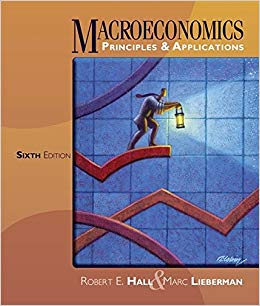Suppose there is a country with 30 households divided into three categories (A, B, and C), with
Question:
Suppose there is a country with 30 households divided into three categories (A, B, and C), with 10 households of each type. If a household earns 20,000 zips (the country’s currency) or more in a year, it must pay 15 percent of its income in taxes. If the household earns less than 20,000 zips, it doesn’t pay any tax. When the economy is operating at full employment, household income is 250,000 zips per year for each type A household, 50,000 zips for type B households, and 20,000 zips for type C households.
a. If the economy is operating at full employment, how much revenue does the government collect in taxes for the year?
b. Suppose a recession hits and household income falls for each type of household. Type A households now earn 150,000 zips, type B households earn 30,000 zips, and type C households earn 10,000 zips for the year. How much does the government collect in tax revenue for the year?
c. Assume the government spends all of the revenue it would have collected if the economy had been operating at full employment. Under this assumption, what is the effect of the recession on the government budget deficit?
d. Suppose instead that the economy expanded and household incomes rose to 400,000 zips, 75,000 zips, and 30,000 zips, respectively, for the year. How much tax would the government collect for the year? What is the effect on the budget deficit (assume again that the government spends exactly the amount of revenue it collects when household income is at the values in part (a))?
e. What does this problem tell you about the relationship between shocks to the economy and the budget deficit?
Step by Step Answer:

Macroeconomics Principles and Applications
ISBN: 978-1111822354
6th edition
Authors: Robert E. Hall, Marc Lieberman





